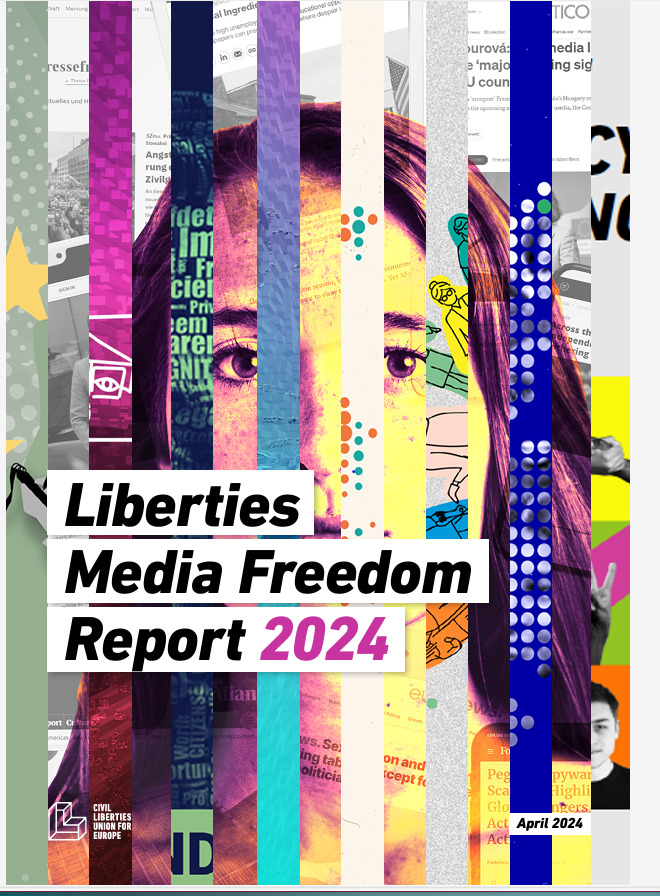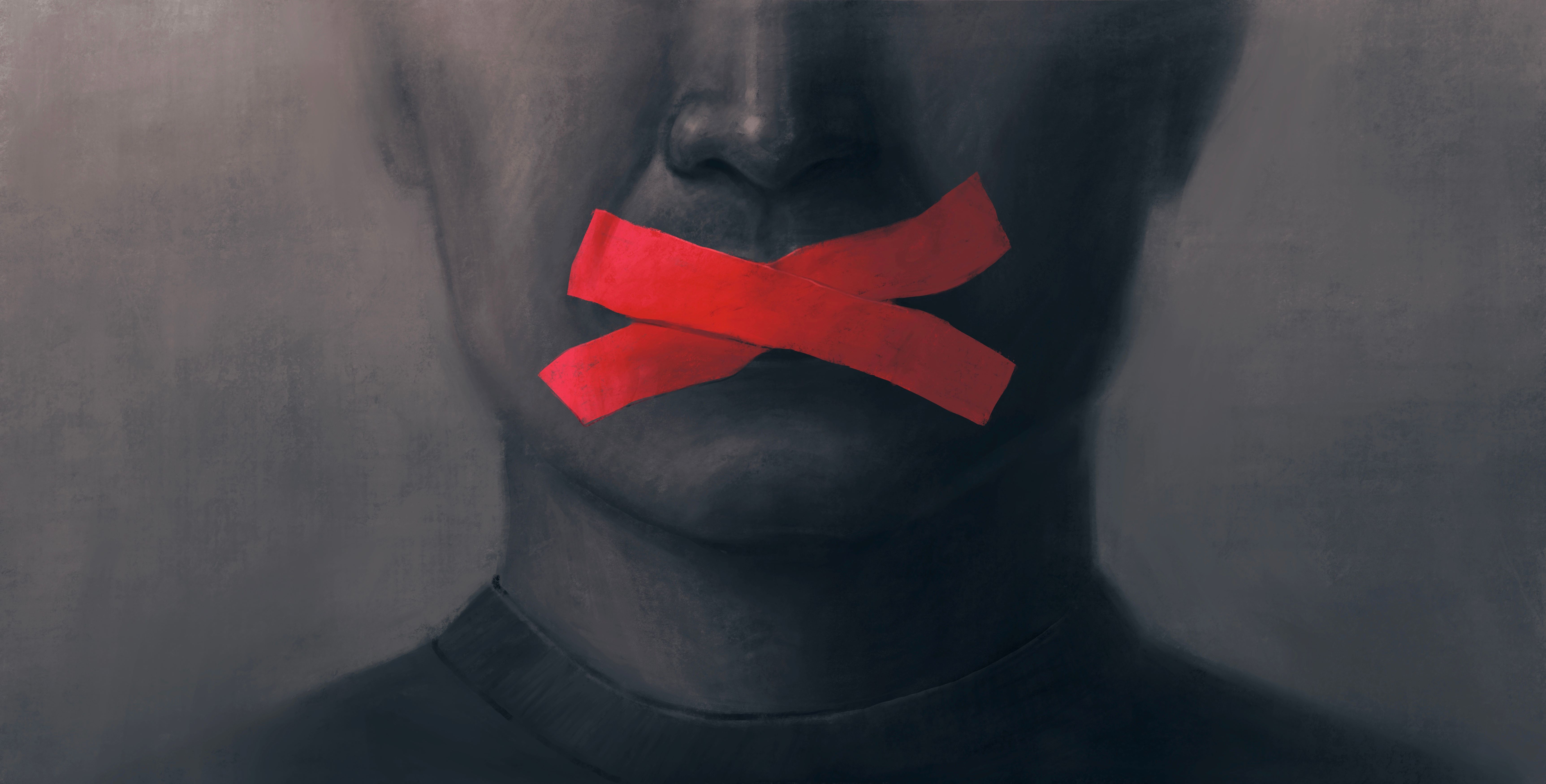The European Civil Liberties Union's Media Freedom 2024 report highlights a decline in press freedom and media pluralism in several EU countries, with calls for comprehensive reforms. The report also points out biases in Western media coverage of the Israeli offensive in Gaza, including restrictions on certain terms and unbalanced reporting. It raises concerns about diminishing media pluralism, journalist prosecution and surveillance, and declining public trust in the media.
Liberties Media Freedom 2024 report issued by the European Civil Liberties Union has warned of a decline in press freedom and media pluralism indicators across several European Union countries. It has also renewed calls for "near-comprehensive" reforms to address enduring issues affecting journalists' freedoms in these nations, which are described as teetering on the brink of collapse.
The report underscores the prevalent trend of curtailing journalists' access to information in numerous EU nations. It also points to the continuous curtailment of funding for independent media initiatives, adversely affecting the diversity of viewpoints and the scope for public dialogue. Such conditions have detrimental effects on democracy and civil liberties.
This report, which examines the state of press freedoms in 19 EU countries, coincides with escalating criticisms of many Western media outlets for their coverage of various topics, notably the Israeli offensive in Gaza. There has been an unprecedented level of unprofessional bias favoring one narrative over others, coupled with restrictions on voices seeking to expose the truth and highlight the range of crimes committed by the occupation against Palestinians.
According to the French website Orient XXI, there has been a crackdown on the use of certain terms by media institutions when referring to Israel. Journalists have been warned against using words like "war crimes" or "genocide," describing Israel's actions. The use of such terms is considered taboo, and there is a push for journalists to follow the official Israeli narrative while discrediting Palestinian statements and stories.
Le Monde in France has released a report that criticizes the unequal valuation of human life and the biased attention of the media based on subjective considerations. This leads to a duplicity that stands in opposition to the journalistic standards professed by these outlets.
Journalism Review has recorded a wide range of these professional and ethical violations in Western media's coverage of the war on Gaza. It underscores instances of bias
Diminishing Media Pluralism
 Amid the increasing prevalence of populism in Europe, the report has emphasized the potential dangers of media ownership becoming too concentrated. Regulatory legislation has been deemed inadequate, despite the European Union's legislative efforts, including the European Media Freedom Act, which was passed by the European Parliament in March of last year..
Amid the increasing prevalence of populism in Europe, the report has emphasized the potential dangers of media ownership becoming too concentrated. Regulatory legislation has been deemed inadequate, despite the European Union's legislative efforts, including the European Media Freedom Act, which was passed by the European Parliament in March of last year..
While this law is significant in enhancing protections for journalists, it may not be sufficient to halt the decline in press freedoms, especially concerning the use of surveillance and spying techniques that have targeted journalists in European countries, including Hungary and Poland. Challenges also persist in increasing transparency regarding media ownership and potential pressures on independent institutions through funding and advertising conditions, which may encourage a climate of self-censorship among journalists.
The report warns of diminishing trust in long-term government funding for public service media projects, specifically in countries such as Ireland, France, and Slovenia. It also notes instances of political interference in other countries, including Hungary, Croatia, and Poland, with growing concerns about the erosion of media independence in places like Italy, particularly following the conviction of an Italian journalist for defamation in October 2023.
In this pressurised media environment, the report records a decline in public trust in the media, reaching its lowest levels in places like the Czech Republic. This trust has been falling since last year in countries including Estonia, Germany, Hungary, and Slovakia, with similarly low levels observed in France and Greece.
Journalist Prosecution and Surveillance
Several journalists in countries like Croatia, Greece, Italy, the Netherlands, and Sweden have faced legal challenges related to their professional activities. One Italian journalist was convicted of defamation by a criminal court in Rome in October of last year. Although the number of serious threats to journalists has decreased, it still remains higher than in the pre-COVID-19 pandemic years. There has been a growing trend of cases brought to court by politicians, businessmen, and influential figures. These cases aim to intimidate journalists and independent media institutions, potentially undermining the safe environment essential for journalistic work.
The report reveals that official entities in various European Union countries have been surveilling journalists using advanced spying technologies like "Pegasus" and "Predator". These technologies violate the privacy of journalists and put their sources at risk, resulting in severe consequences in the journalistic work environment. These consequences include widespread self-censorship, fear of persecution and blackmail, and the undermining of democracy and human rights.
While the report did not specifically mention new patterns of restrictions and persecution of journalists during the Israeli war on Gaza and the spread of popular demonstrations and pro-Palestine protests calling for an end to the war and occupation in several European capitals, the indicators included in the report point to negative trends that may affect press freedoms within the European Union. These trends could impact not only journalistic practices and the level of public trust in media in those countries but also extend beyond Europe, potentially undermining the credibility of mainstream media in favour of alternative news access and consumption methods like social media, where misinformation, algorithmic biases, and the relativity of truth also proliferate.











































